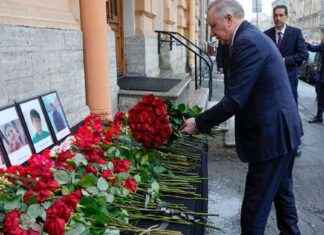The Congress of Venezuela Free brings together the fragmented opposition to chavismo
Venezuela: surprise and repudiation at the opposition by the turn of English
The venezuelan opposition accuses Nicolas Maduro of using the attack to escalate the repression
“oh, Venezuela, free! ¡Venezuela libre!”. The Congress of Venezuela Free, yet another attempt of unity in the fragmented and battered venezuelan opposition, ended up screaming a dream that really is the only thing that unites all political parties, civil organizations and personalities that face the chavismo. “You come to say to Venezuela that not everything is dead. Venezuela needs to be reborn again, enough of the ruin and the collapse of the country”, proclaimed the father Luis Ugalde, one of the voices more preclaras within the country, and who together with father José Virtuoso, rector of the Andrés Bello Catholic University, seeks to impose his good offices to get something akin to a miracle.
“The 90% of venezuelans thinks that Venezuela is not free and that has sown a sense of powerlessness and resignation about the Government is going to perpetuate itself,” said Ugalde, of basque origin.
“This Congress marks the beginning of a period of reunification of all democratic forces willing to confront the dictatorship in order to overcome the humanitarian crisis that plagues the venezuelan…, to conquer freedom and, going forward, to avoid the populism and authoritarianism put at risk”, highlights in its first point of the manifesto released after the Congress, which also insists on retrieving a common path and a unitary pair the transition.
On the conclusions of the meeting flies by means of a key date, the 10 of January, when it finishes the current presidential term of Nicolas Maduro. A good part of the country, 14 nations of the region, the USA, Canada, Australia, Japan and the Union European have recognized the presidential elections in may, so that in the new term that opens that day “disappears completely any vestige of legitimacy of a totalitarian dictator”, argues in the manifesto.
The key to what comes today from the opposition is how it will be organized to “provide a channel for the growing social unrest of the venezuelan people”. “The opposition is virtually broken in such a way that you can speak of oppositions balcanizadas,” sums up the political scientist Luis Salamanca, a former rector of the National Electoral Council (CNE).
The stronger block is made up by two parties of the old G4 of the Democratic Unity, First Justice (PJ) and voluntad Popular (VP). They are the most persecuted by the government, Leopoldo Lopez (VP) is still on house arrest, and with Julio Borges, coordinator (PJ), exiled in Bogotá. The two parties attended the conclave this Monday in Caracas, including John Guaidó, favorite to preside over the Parliament in the coming year, he insisted on re-opening “a space for the meeting of all sectors of society”.
Also in attendance were other leaders, such as Henrique Capriles, Henry Ramos Allup, and Manuel Rosales, in addition to key actors of the civil society, trade unions, guilds, other games of the Unit and also outside of it, as the marxist Red Flag, in addition to the chavez dissident. “We hope,” said Sairam Rivas, a former student leader and former political prisoner, an activist today-Red Flag.
At the end of the act, Capriles acknowledged that it was working on finding a “political solution agreed”, dialogues or negotiations that are widely criticised by the sector for radical opposition and also by the bolsonaristas, Resistance groups gathered around the president-elect of Brazil.
“What is more important is the respect for the other, it’s not about being against someone, it is correct and doing the right things for the future of Venezuela,” said the activist Lilian Tintori, wife of Leopoldo López, the political prisoner more emblematic of chavez.
One of the stars of the conclave was Marlon Diaz, the brand-new student leader of the University of Carabobo, after beating the ruling party in elections marked, once more, by threats and violence. Diaz led a unified list of all the opposition, another miracle in the Venezuela of today. “This Congress already harvesting the fruits: to make possible the reunion of the venezuelans who are fighting for democracy,” emphasized Diaz.
According to the criteria of
Learn more






